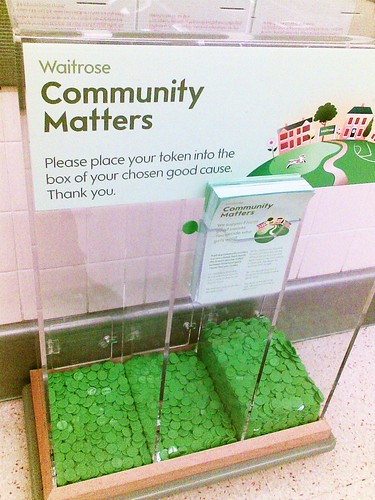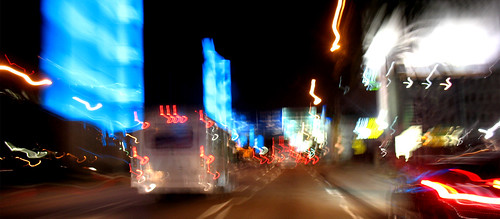27 Banal Observations of a Recent Immigrant
2009

This post is in response to, and inspired by this fantastic article in the Guardian by Paul Carr.
As Carr did in his piece, let’s just get this over and done with. Here are the things I’ve noticed about the UK in the past seven weeks.
Please note that many of these are in jest, or at least are written with a love for all three countries I’ve lived in. There’s no need for the irate comments, emails or tweets I’ve received over the past few weeks (since this became popular on StumbleUpon again). Calm down, Internet peoples.
1) Everything in the UK can be accomplished via SMS, or text message. Government organisations don’t send you letters. They don’t even email. They bloody text you. It’s like this country is run by fifteen year olds, recently armed with pre-paid Nokia 5120s. It’s brilliant.
2) Brown sauce is, to the English, what yellow mustard is to Americans. Gratuitously added to everything and a complete mystery to most foreigners.
3) You’ll think you’ve settled in and have mastered the art of not saying bathroom, sidewalk, apartment or white-out, and then you’ll tell the woman at Farringdon station to put ten bucks on your Oyster card. She’ll look at you like you went to the bathroom on the sidewalk.
4) There is little more satisfying than a new £20 note. Something about the size of the note and the texture of the paper makes it blindingly obvious that it’s worth more than $20. Somehow, this isn’t so true for £10 and £5 notes. My favourites are the £20s. I would like to have lots and lots of them.
5) You really want to say quid, and when you do for the first time, you feel like a complete poseur. No one else notices.
6) No one in England can decide which side of the sidewalk pavement on which to walk. In America, we walked on the right. In New Zealand, we walked on the left. Here, it seems that a heavy European influence has confused everyone and everyone gets duly pissed off at those people not walking on the same side of the pavement as they are. I honestly don’t see what’s so difficult about the idea that one should walk on the same side of the pavement as one drives on the road.
7) When in Rome, jaywalk like the Romans. It’s illegal to jaywalk in Seattle, so I never did it, and I didn’t like it when other people did it, especially in front of my car. In London, jaywalking is a sport, based solely on survival of the fittest. You’re never going to get to cross the road if you wait for the lights to change, so you’d better be really good at running in your knee-high boots.
8 ) Anti-Americanism is far worse than I ever thought it was. I guess they don’t say it to you—Americans—but they say it to me. People here ‘hate Yanks’. I try to explain that there are 300 million people in the United States and that not all of them embody the negative national stereotype that seems to define the modern ‘Yank’. Some of my best friends are American. They’re great people. However, if I ever use an example of something specific to the United States, the opinion is met with disdain. I am considering replacing ‘America’ with any other country from now on, just to gauge the different reaction. For the love of Christ, England (and the rest of you): the United States isn’t a bad place and it isn’t filled with bad people. The ironic thing about this anti-Americanism is that it sometimes comes from people who also regard Americans as some of their best friends. This somewhat mirrors how Americans can see Brits as stuffy, humourless monarchists, yet simultaneously adore Eddie Izzard.
9) Just being away from the United States makes you skinnier. Saturated fat appears to have escaped into the air in America. Here, you can eat fish and chips and pies and drink London Pride for days on end and wander around in skinny jeans. I have no other explanation for this besides ‘magic’.
10) Remember all those contracts everyone made you sign for absolutely everything in the States? No, we don’t have those.
11) Remember cheques? No, we don’t have those either. Because it’s 2009. For God’s sake, America. Keep up.
12) How to break up a phone number is a political issue. Whereas in the States, we’re all basically agreed upon , there is serious debate here over where the brackets should go and where the breaks should be. I assume that you have to have been born British to understand why this is important.
13) In the country that brought us Top Gear, there is no need to own a car if you live in a city. In fact, owning a car here in central London would be a burden. Owning anything more than feet and an Oyster card is superfluous when you live within ten minutes of High Holborn and eight-hundred metres of two tube stations.
14) The fact that the BBC has no ads is great, save for one thing: the toilet. Sixty straight minutes of Top Gear means that they better have a D-list star in the reasonably priced car, because that’s the only time you’re going to be able to sneak away to the loo.
15) Chavs. What’s that all about?
16) Any question regarding human nature can be answered by either:
1. That’s blokes for you; or
2. That’s birds for you
Nothing more needs to be said following either of those two statements. Everyone drinks beer.
17) Even though you feel like a dick for doing so, you smile a little every time Kanye West sings ‘we the hottest in the world right now / just touched down in London town’.
18 ) This is considered fast food. See: England making you skinnier.
19) The English never tire of hearing Americans (and New Zealanders) talk about their ‘pants’.
20) The washing machine is in the kitchen. I’ve had a washing machine in my kitchen for six weeks now, so it no longer seems odd to me; however, upon arriving in this country, the idea of washing my clothes next to my dishes was very strange. The washing machine usually goes in the bathroom or in a room of its own in the U.S. Don’t try to debate the issue with people of either nationality: the argument is about as intelligent as the one about where breaks should come in phone numbers.
21) Jeep Cherokees are the largest cars on the road. The smallest cars on the road are smaller than American motorcycles.
22) As appears to be the case across Europe, asking for water in a restaurant is not enough. You must specify whether you want bottled or tap water. Despite London water tasting like liquid magic, somehow asking for tap water sounds like you’re going to get something warm that smells of chlorine.
23) After six years in the United States, I still feel the need to affect an American accent when on the phone to strangers, or whilst ordering things in a loud restaurant or bar. The latter situation came about after years of being misunderstood when I ordered a drink of ‘wortah’. The former has me rolling my ‘r’s on the phone, sounding like a cross between Madonna and Anna Paquin.
24) Mobile. Fucking. Broadband.
25) People in the UK who don’t live in Seattle think that the skyline from Frasier is real.
26) Despite a close proximity to Ireland, St. Patrick’s Day is far less annoying in England because everybody doesn’t think they’re Irish.
27) Both here and in America, things go tits up and it’s bad. However, in the UK, things are the tits and it’s good.
by on Flickr





Comment